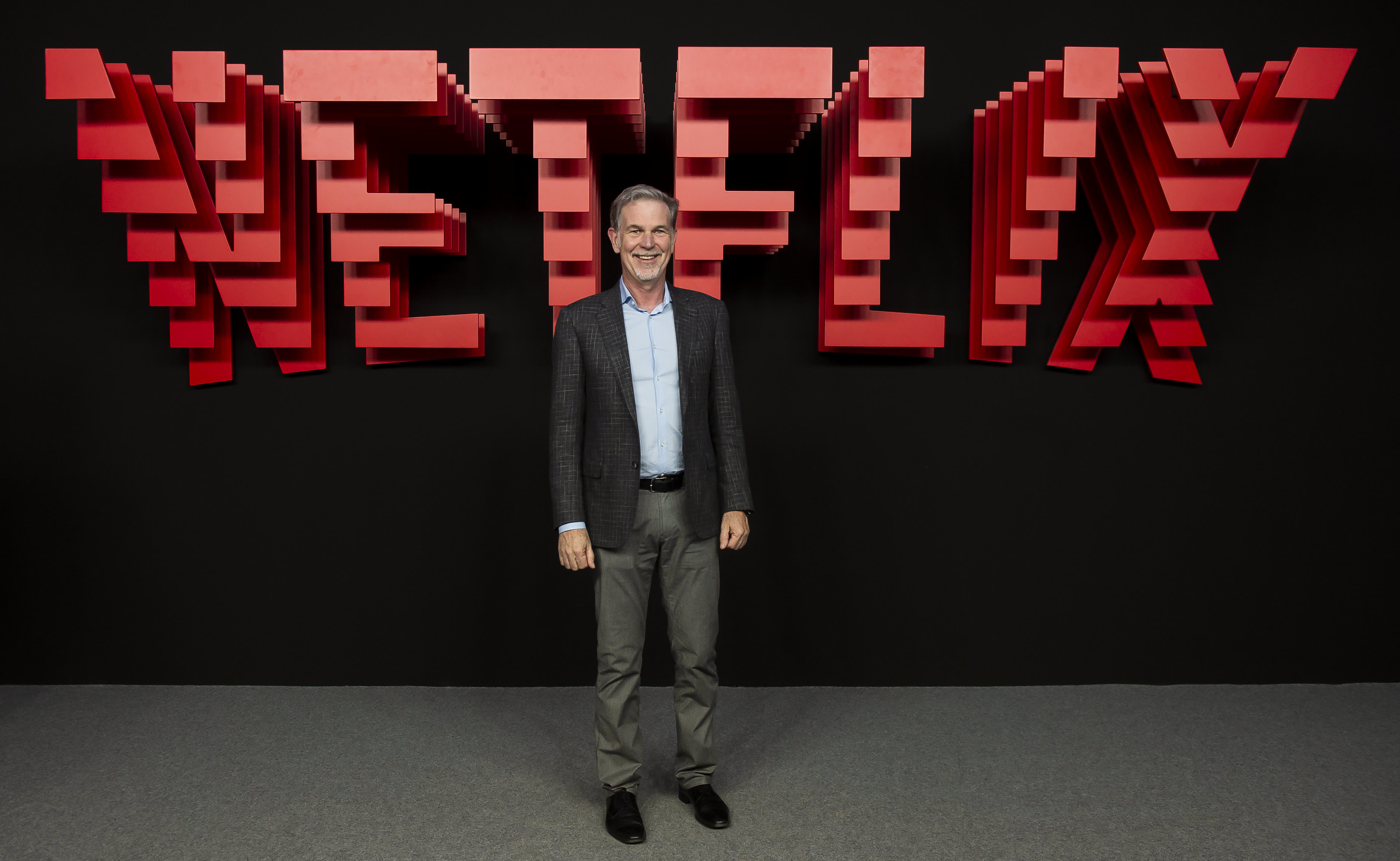CEO Of Netflix, Reed Hastings, attends the red carpet during the Netflix presentation party at the Invernadero del Palacio de Cristal de la Arganzuela on April 4, 2019 in Madrid, Spain.
Juan Naharro Gimenez | Getty Images
Netflix downplayed concerns about competition in its Q4 2019 earnings report, but subscriber numbers don’t lie.
Netflix noted that “despite the big debut of Disney+ and the launch of Apple TV+, our viewing per membership grew both globally and in the US on a year over year basis, consistent with recent quarters.”
That’s true — Netflix added 8.8 million net subscribers in the fourth quarter, on par with the 8.8 million added last year and ahead of the company’s internal forecast of 7.6 million.
But Netflix also acknowledged that growth in the U.S. and Canada is slowing rather dramatically. The company added just 550,000 net subscribers in the region this quarter (and just 420,000 in the U.S.), down from 1.75 million in the same quarter one year ago. Netflix doesn’t shy away from the reason, noting “U.S. competitive launches” as one of the primary factors causing fewer people to sign up.
Netflix is also factoring in competition to its guidance, noting that “slightly elevated churn levels” in the U.S. led the company to project net adds of just 7 million globally for the first quarter of 2020, down from 9.6 million in the first quarter of 2019. Given that NBCUniversal’s Peacock and AT&T’s HBO Max haven’t debuted yet, it’s possible Netflix may be preparing for a world where total U.S. subscribers start to decline more consistently.
In addition, Netflix added a Google search trends chart for “The Witcher,” Disney’s ”The Mandalorian,” Amazon’s “Jack Ryan” and Apple’s “The Morning Show” to show that Netflix shows will still flourish in the face of competition.
But even if you take searching for a term as a direct proxy for being popular (which is dubious), Netflix noted in a footnote that Disney+ is only in the U.S., New Zealand, Canada and Australia, while the other three services are global. And Amazon’s “Jack Ryan” isn’t a new show — it’s already in its second season. So, naturally, search interest may be lower. The overall comparison seems clunky and a little desperate.
The effect of competition on Netflix will be one of the biggest media storylines of the next few years. If Netflix can consistently beat back rivals, it should be able to sustain its lofty valuation over legacy media companies. If it can’t, well, that’s why Greenlight Capital’s David Einhorn increased his short position in the stock Tuesday.
Disclosure: Comcast owns NBCUniversal, parent company of CNBC.
